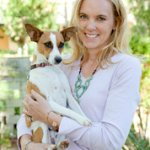If you are a parent to human children, you are probably familiar with the term “helicopter parent”. If you do not have human children, you may not be familiar with the term.
“Helicopter parents” are parents that constantly oversee their children. They often are hesitant to leave their children at school, they are involved in everything the children are doing (even when they are at home playing) and they rarely allow their children to do anything without them. Most children with these overly involved parents will either become extremely dependent on their parents to do anything or they rebel and want nothing to do with their parents.
As a dog trainer, I see dog parents that are “helicopter parents.” These dog parents rarely leave their dog alone at home, they encourage their dogs to follow them throughout the house and they have a hard time letting their dogs play independently. Although most of these dog parents mean well, they often create more problems than they realize. In many cases, these dogs develop anxiety when they are left alone, they do not learn how to entertain themselves and they can develop attention seeking behaviors (like crying or barking to get attention).
When my clients adopt a puppy or adult dog, I encourage them to teach their puppy or dog how to be a confident dog. Some dogs have a more confident personality at birth while others will need encouragement to be confident and independent. I recommend that all dogs are given the opportunity to learn how to play alone and entertain themselves. I like to offer dogs a variety of food dispensing toys (like Kongs, Buster Food Cubes and other toys that dispenses food when the dog plays with it).
I also educate my clients to give their dogs a variety of bones and chew toys that will keep the dogs attention for a long period of time. In addition, dog parents should begin teaching their puppy or dog new behaviors shortly after they enter their new home. By teaching their dog “sit”, “down”, “come” and “stay”, they are teaching their dog “English as a language”. When our dogs know cued behaviors, it allows us to communicate easier with them and we can help them behave appropriately in various situations (we can have them sit when greeting a person rather jump and we can have them lay down if we take them to a coffee shop or restaurant).
“Helicopter” dog parents are often home a lot. Whether they are retired, work from home or home school their kids, people who don’t leave their homes on a regular basis often have dogs that do not know how to be alone.
Separation anxiety is one of the hardest behavior problems to overcome and prevention is much easier!
When a puppy or dog is adopted, the pet parents should make a point of leaving at least once a day. The amount of time should vary and should increase gradually. Puppies that are still being housetrained, should not be left alone for long periods of time until they are fully housetrained. In some situations, a crate or exercise pen should be used to keep the puppy or dog safe until they can be trusted in the house when they are alone.
Dogs are amazing and can be a great addition to a home.
We owe it to them to teach them how to be confident, independent individuals so they can live a happy, stress free lives.
 Shannon Coyner
Shannon Coyner
Shannon has been a pet lover all her life and a dog trainer for over 20 years. She has spent her life observing, caring for and training animals of all kinds. She has worked in the Bird Department at Marine World Africa USA, and worked as an handler and trainer for an African Serval Cat at Safari West, a private zoo in Santa Rosa, California. She has participated in behavior studies including observations of bald eagles and addax antelope through the San Francisco Zoo and Safari West.
Her education includes a Biology Degree, specializing in Zoology from Sonoma State. She is a Registered Veterinary Technician, a Certified Professional Dog Trainer (Knowledge Assessed), a Karen Pryor Academy Certified Training Partner, a member of the Association of Pet Dog Trainers and a member of the International Association of Animal Behavior Consultants.
Shannon is currently serving as President for the Society of Veterinary Behavior Technicians.
Shannon’s dog training philosophy revolves around force free, positive reinforcement, however, her ultimate goal is for healthy happy relationship between pets and their people. Diet, exercise, environment and training all play a significant role in achieving this goal.
Shannon is currently the owner of Ventura Pet Wellness and Dog Training Center in Ventura, CA where she works with anxious and fearful dogs privately as well as teaching agility classes (Venturapetwellness.com). Shannon has also started a training website called Truly Force Free Animal Training (trulyforcefree.com).
























 Shannon Coyner
Shannon Coyner